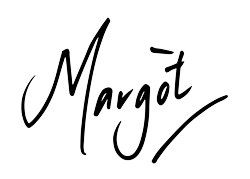“Position and authority will give you followers, but trust will make you a leader.” – Aubrey McGowan
No matter where we turn, trust seems to be on the decline. Barely a day goes by where we don’t hear of a broken promise, contract or principle. Trust, which is widely regarded as the glue to any relationship, appears to be at crisis levels for many individuals and organisations today. In fact, recent statistics suggest that only 47% of employees trust senior management and only 32% believe CEO’s to be a credible source of information, according to the Centre for Organisational Excellence.
This lack of trust represents a leadership crisis of monumental proportions. When we don’t believe those around us it not only sets in motion a tidal wave of negative attitudes and emotions, it actually significantly impacts our ways of thinking and behaving. So much so that it can easily become the biggest blocker to us achieving our goals.
On a more positive note, it provides you as a leader with a brilliant opportunity to stand out by building solid foundations of trust with your teams, your clients and your networks in a landscape that clearly seems to be both lacking in it and craving more of it.
Stephen Covey’s analogy of trust as a tax or a dividend is a highly powerful one: When there is a lack of trust in a relationship or organization, it is like a hidden tax that is placed on every transaction, piece of communication, decision and strategy, which brings speed down and sends costs up. By contrast, individuals and companies that operate with high levels of trust reap the benefits of a dividend that enables them to succeed by multiplying performance, productivity and capability.
Lack of trust therefore has the capacity to literally double the cost of doing business and triple the delivery timeframes; where as high trust has the capacity to not only significantly save time, money and angst but also deepen relationships, build greater collaboration, career fulfillment and success for all involved.
For leaders, trust is two fold. You need to be able to engender it and you need to be able to give it. Without both, true success cannot be achieved. The most successful leaders recognise this and focus on creating it as a core objective. They make it a priority to build confidence in their:
- Capability – to deliver and build a solid track record of results; and
- Character – by acting with authenticity, integrity and clear intent;
Employees, customers and clients are simply asking the question – Can I trust you to deliver what you set out to promise and in a way that is honest and ethical?
Successful leaders understand that to gain trust you must also give it. They recognise that there is always a risk when giving trust and don’t deny the past or ignore the possibility of future results. They weigh up the risks and benefits before giving it and when they do, they ensure that they have established the right environment and frameworks to support and manage successful outcomes. They know when to step in and when to step away – and most importantly how to do it.
So how do the most successful leaders build trust?
- Establish purpose and commitment: from individuals and between individuals
- Communicate honestly and transparently: by talking straight and keeping it real!
- Ensure actions match words: remove ambiguity and take the guess work out of situations
- Deliver results: that offer lasting and meaningful value
- Listen and observe: Not just to those that shout the loudest but to all members of a team
- Demonstrate consistency: If you do what you say and say what you do, people will trust you
- Remove the ‘landmines’: the hidden agendas, the vagueness and doubt
- Clarify expectations, purpose and commitment: contributions, behaviours and attitudes
- Value accountability: both for themselves and the team’s that they lead
- Remain engaged: with individuals, objectives, processes and outcomes
- Acknowledge and give credit where credit is due: both individually and publicly
- They not only earn trust, they extend it to others.
Trust is not just a nice-to-have. It is a critical component of personal, team and organizational performance. It is a clear enabler of success and one that underpins your leadership skill set and true capability.
The logic is pretty simple: if people trust you and that trust is reciprocated, they will give you their all.
As always, I would love to hear your thoughts.


